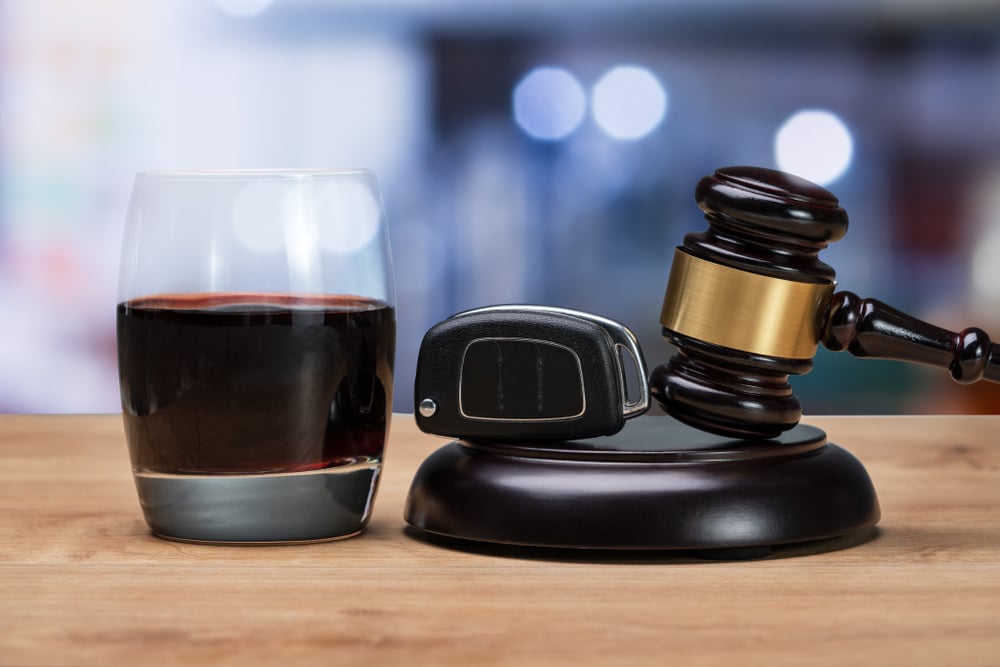
West Virginia takes a strong stance against driving under the influence through comprehensive legislation and strict enforcement measures. The state defines DUI as operating a motor vehicle with a blood alcohol concentration (BAC) of 0.08% or higher for regular drivers, and 0.04% for commercial drivers. Law enforcement officers are empowered to conduct sobriety checkpoints and utilize various testing methods to detect impaired driving.
The state employs a combination of criminal and administrative penalties to address DUI offenses, with enforcement carried out through coordinated efforts between state police, local law enforcement agencies, and the Division of Motor Vehicles (DMV). West Virginia follows an implied consent law, meaning drivers automatically consent to chemical testing when operating a vehicle on state roads.

0.08% or higher for regular drivers and 0.04% for commercial drivers

Yes

6 months

Mandatory

Yes (0.15%+)
West Virginia faces unique challenges in combating DUI due to its rural nature and mountainous terrain. The state has seen a gradual decline in DUI-related fatalities over the past decade, though rates remain higher in rural areas where access to alternative transportation is limited. The landscape is characterized by a mix of local and state law enforcement jurisdictions, each playing crucial roles in DUI prevention and enforcement.
The state’s approach to DUI control is influenced by both geographic and demographic factors, with particular attention paid to high-risk areas and times. Special emphasis is placed on holiday periods and events where increased drinking and driving typically occur. The enforcement landscape also includes partnerships with neighboring states to address cross-border DUI issues.
First-time DUI offenders in West Virginia face minimum penalties including up to six months in jail, fines ranging from $100 to $500, and license suspension for up to six months. The state employs a graduated penalty system, with punishments increasing significantly for subsequent offenses. Second offenses within ten years carry mandatory jail time of six months to one year, fines up to $3,000, and license suspension for one year.
For aggravated cases involving high BAC levels (0.15% or higher) or DUI with minors in the vehicle, enhanced penalties apply. Third and subsequent offenses are treated as felonies, potentially resulting in prison sentences of up to three years, fines up to $5,000, and extended license revocation periods. The state also mandates installation of ignition interlock devices for certain offenders.
West Virginia law provides for enhanced penalties in cases involving aggravating circumstances. These include DUI resulting in injury or death, DUI with minors in the vehicle, and DUI in school zones. Such cases often result in felony charges, carrying significantly higher fines and mandatory minimum prison sentences. The presence of a minor in the vehicle adds an additional mandatory penalty of 48 hours to six months in jail, even for first offenses.
Refusing chemical testing triggers automatic administrative penalties under implied consent laws, including longer license suspension periods than those imposed for DUI convictions alone. Commercial drivers face particularly strict standards, with lower BAC limits and more severe consequences affecting both their commercial and personal driving privileges.
Law enforcement in West Virginia employs a multi-faceted approach to DUI detection and prevention. Regular patrols are supplemented with sobriety checkpoints, which must be conducted according to strict constitutional guidelines and with advance public notice. Officers are trained in standardized field sobriety testing (SFST) and are required to follow specific protocols when conducting traffic stops and DUI investigations.
The state utilizes a combination of marked and unmarked vehicles, particularly during high-risk periods such as holidays and major sporting events. Task forces combining multiple agencies are frequently deployed for maximum coverage and effectiveness. Officers must document probable cause for stops and maintain detailed records of all testing procedures and results.
West Virginia law enforcement agencies utilize state-of-the-art technology for DUI detection and evidence collection. Preliminary breath testing devices are used roadside, while more sophisticated evidentiary breath testing equipment is maintained at police stations and jail facilities. All testing equipment must meet strict calibration and maintenance requirements, with regular certification to ensure accuracy.
Blood testing is conducted at certified laboratories, with chain of custody procedures strictly enforced. The state also employs advanced video recording systems in patrol vehicles and at testing facilities to document interactions with suspected impaired drivers. Drug recognition experts (DREs) use specialized equipment and protocols for detecting drug impairment.
The state offers various treatment and rehabilitation options for DUI offenders, ranging from education programs for first-time offenders to intensive treatment for repeat offenders. The Safety and Treatment Program is mandatory for all DUI offenders and must be completed before license reinstatement. Programs are tailored to individual risk levels and needs, with some offering specialized services for alcohol dependency and co-occurring mental health issues.
Treatment providers must be approved by the state and follow standardized curricula. Programs typically include both group and individual counseling, education about alcohol and drug abuse, and strategies for preventing future offenses. Completion of treatment programs may be considered favorably by courts when determining sentences and license reinstatement.
West Virginia’s mandatory treatment framework operates on a tiered system based on offense severity and repeat offender status. First-time offenders must complete at least 12 hours of alcohol education and assessment. Multiple offenders face more intensive requirements, including inpatient treatment programs lasting 30 days or more, depending on assessment results.
The framework includes regular progress monitoring and reporting to courts and probation officers. Failure to comply with treatment requirements can result in additional penalties, including extended license suspension periods and potential jail time. The state maintains strict standards for treatment providers and program content.


Post-conviction monitoring in West Virginia includes regular check-ins with probation officers, random drug and alcohol testing, and compliance verification with court-ordered programs. Ignition interlock devices, when required, must be installed by certified providers and regularly calibrated. The state maintains a database of offenders to track compliance and identify repeat offenders.
Violations of monitoring requirements trigger swift consequences, potentially including immediate arrest and additional penalties. The state employs various technologies for remote monitoring, including alcohol monitoring ankle bracelets for high-risk offenders. Regular progress reports are required from treatment providers and monitoring agencies.
The administrative process begins immediately upon arrest with the seizure of the driver’s license and issuance of a temporary driving permit. Drivers have 30 days to request an administrative hearing to contest license suspension. The DMV handles these proceedings independently of criminal court proceedings, meaning drivers face both administrative and criminal consequences.
Documentation requirements are strict, with specific timelines for filing appeals and requesting hearings. The DMV maintains records of all DUI offenses and coordinates with other states through the Driver License Compact to ensure consistent enforcement of penalties across state lines.
License revocation proceedings operate on strict timelines, with specific requirements for notification and response. Drivers must file hearing requests within prescribed periods and meet burden of proof requirements to contest administrative actions. The DMV processes reinstatement applications, ensuring all requirements including treatment completion, fine payment, and insurance verification are met.
Administrative hearings are conducted by hearing examiners who review evidence including officer reports, chemical test results, and witness testimony. Decisions can be appealed through the court system, though strict deadlines apply. The DMV coordinates with courts and treatment providers to track completion of required programs.
Criminal court proceedings for DUI cases follow specific protocols, starting with arraignment where charges are formally presented. Defendants have rights to legal representation and may qualify for public defenders if financially eligible. Pre-trial procedures include discovery, motion hearings, and plea negotiations. Cases may be resolved through plea agreements or proceed to trial.
Courts maintain specialized DUI dockets in many jurisdictions to handle cases efficiently. Judges consider various factors in sentencing, including BAC levels, prior offenses, and completion of voluntary treatment programs. Appeals must be filed within strict timeframes and follow specific procedural requirements.
Multiple agencies coordinate DUI enforcement and prevention efforts in West Virginia. The Division of Motor Vehicles handles administrative procedures and maintains driving records. The State Police and local law enforcement agencies conduct enforcement operations. The Division of Highway Safety coordinates prevention programs and maintains statistical data.
The Department of Health and Human Resources oversees treatment provider certification and program standards. The State Crime Lab processes chemical test samples and provides expert testimony. Various other agencies contribute to different aspects of DUI prevention, enforcement, and rehabilitation efforts.
West Virginia participates in the Driver License Compact, sharing DUI conviction information with other states. Out-of-state convictions are considered for enhancement purposes when prosecuting new offenses. The state coordinates with neighboring jurisdictions on enforcement efforts, particularly in border areas.
Special considerations apply to commercial drivers operating under federal regulations. Interstate enforcement agreements facilitate cross-border pursuit and arrest authority for DUI offenses. The state’s DUI laws apply to all drivers on West Virginia roads, regardless of license state of origin.
Different jurisdictions within the state may have varying local ordinances affecting DUI enforcement. Federal lands, including national forests and military bases, present special jurisdictional considerations. Tribal lands, though limited in West Virginia, may have specific agreements regarding DUI enforcement.
Municipal courts handle some DUI cases, though serious offenses are typically prosecuted in state courts. Jurisdiction may shift based on where the offense occurred or whether federal authorities become involved.
DUI convictions carry significant financial burdens beyond court-imposed fines. Costs include attorney fees, increased insurance premiums, license reinstatement fees, and treatment program expenses. Installation and maintenance of ignition interlock devices add substantial costs. Lost wages due to jail time or license suspension create additional economic hardship.
The state allocates significant resources to DUI enforcement, including equipment purchases, officer training, and program administration. These costs are partially offset by fines and fees collected from offenders, though the overall economic impact on state resources remains substantial.


DUI incidents impact communities through property damage, increased insurance rates, and strain on emergency services. Healthcare costs related to DUI crashes affect overall medical system expenses. Lost productivity due to injuries, court appearances, and incarceration creates ripple effects throughout the economy.
Families of both offenders and victims face emotional and financial challenges. The state invests heavily in prevention and education programs to reduce these societal costs, though measuring program effectiveness remains challenging.
West Virginia continues to evaluate and update its DUI laws based on emerging research and technology. Proposed legislation often focuses on strengthening penalties, expanding treatment options, and incorporating new detection methods. The state monitors national trends and federal guidelines when considering law updates.
Recent legislative discussions have included lowering the BAC limit to 0.05%, expanding ignition interlock requirements, and increasing minimum mandatory penalties. Technology integration and modernization of enforcement methods remain priorities for future development.
The state increasingly relies on digital systems for record-keeping, monitoring, and enforcement. Advanced breath testing devices, body cameras, and electronic citation systems streamline the enforcement process. Database integration helps track offenders across jurisdictions and ensures compliance with court orders.
New technologies under consideration include real-time BAC monitoring devices and improved drug detection methods. The state maintains standards for technology certification and training requirements for officers using new equipment.
Drug-impaired driving presents growing challenges as substance abuse patterns evolve. The legalization of medical cannabis in surrounding states creates new enforcement considerations. Detection methods for drug impairment continue to develop, requiring ongoing officer training and equipment updates.
The rise of ride-sharing services influences DUI patterns and prevention strategies. Alternative transportation programs and public education efforts adapt to changing social patterns and technology availability.
West Virginia implements various prevention programs targeting different age groups and risk populations. School-based education programs focus on teenage drivers, while public awareness campaigns address adult drivers. The state coordinates with non-profit organizations and community groups to expand prevention efforts.
Programs include media campaigns, school presentations, and community outreach events. Effectiveness is monitored through data collection and regular program evaluation, with adjustments made based on outcomes.
DUI convictions can significantly impact employment opportunities, particularly in positions requiring driving or security clearance. Commercial drivers face potential career-ending consequences due to federal regulations. Some employers require regular driving record checks and may terminate employment upon DUI conviction.
Professional license holders may face additional consequences through licensing boards. The state’s employment protection laws generally do not prevent termination for DUI convictions.
The state tracks treatment program outcomes through recidivism rates and program completion statistics. Evidence-based practices are incorporated into program requirements, with regular updates based on effectiveness research. Success rates vary by program type and participant characteristics.
Factors influencing effectiveness include program duration, intensity, and individual compliance. The state continues to evaluate and modify treatment requirements based on outcome data.
DUI convictions typically result in substantial insurance premium increases or policy cancellation. High-risk insurance requirements may last several years following conviction. The state requires proof of insurance for license reinstatement and monitors compliance through electronic verification systems.
SR-22 insurance requirements apply to DUI offenders, with specific coverage levels and duration requirements. Failure to maintain required insurance results in additional penalties and license suspension.


SR-22 insurance certificates must be maintained for prescribed periods following DUI convictions. The state monitors compliance through electronic reporting from insurance companies. Lapses in coverage trigger automatic license suspension and notification to law enforcement.
Minimum coverage requirements exceed standard insurance levels, resulting in higher premiums. SR-22 requirements may extend to other states if drivers relocate during the mandatory period.
DUI convictions impact various aspects of daily life beyond legal penalties. Transportation challenges affect employment, education, and family obligations. Social stigma and relationship stress create additional burdens. Access to alternative transportation varies significantly by region.
Support services help offenders address these challenges, though resources may be limited in rural areas. Community reintegration programs assist with employment, housing, and other practical needs.
West Virginia maintains a comprehensive approach to DUI enforcement, combining strict laws with rehabilitation opportunities. The system balances punitive measures with treatment options, recognizing both public safety needs and rehabilitation goals. Administrative processes work alongside criminal proceedings to ensure thorough enforcement and monitoring.
The state’s multi-agency approach coordinates enforcement, treatment, and prevention efforts. Technology integration and legislative updates keep enforcement methods current, while treatment programs evolve to meet changing needs. Interstate cooperation ensures consistent enforcement across jurisdictions.
Financial implications extend beyond immediate penalties to long-term insurance and employment consequences. Support systems help offenders address these challenges while maintaining focus on public safety. Prevention programs target various populations with educational and awareness initiatives.
Emerging issues, including drug-impaired driving and changing transportation options, continue to shape enforcement strategies. The state monitors program effectiveness and adjusts approaches based on outcome data. Future developments will likely focus on technology integration and expanded treatment options.
The overall framework demonstrates West Virginia’s commitment to reducing impaired driving while providing opportunities for rehabilitation. Continuous evaluation and adjustment of programs help maintain effectiveness while addressing new challenges as they emerge.
At DUI 101, our mission is to empower you with the knowledge needed to make informed decisions during this challenging time. Explore our articles and guides to better understand your situation and the steps ahead.
© 2024 Chapman SEO LLC. This website is for educational and informational purposes only. All content is created using AI technology and maintained by non-lawyers and should not be considered legal advice. The information provided is general in nature and may not be suitable for your specific situation. Always consult with a qualified legal professional for advice regarding your individual circumstances. We do not create attorney-client relationships through this website. By using this site, you acknowledge that you have read and understand these terms.